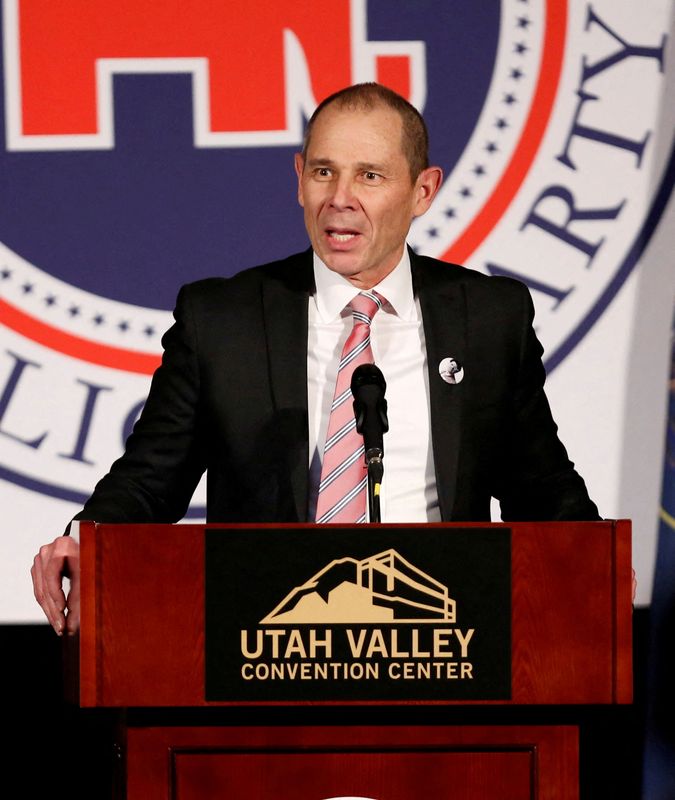COP 27- U.S. House Republicans to press need for minerals at climate talks
2022.11.02 18:55
[ad_1]

© Reuters. FILE PHOTO: FILE PHOTO: Republican U.S. Rep. John Curtis of Utah, running for re-election to the U.S. House of Representatives in the 2022 U.S. midterm elections, speaks at the Utah County Republican Party Lincoln Day Dinner, in Provo, Utah, U.S. February
By Timothy Gardner
WASHINGTON (Reuters) – Republican U.S. representatives heading to U.N. climate talks in Egypt plan to discuss developing critical minerals used in everything from nuclear energy and electricity transmission to batteries for electric vehicles, the head of the delegation said on Wednesday.
“I’m hoping to see a more practical approach to bringing forth the critical minerals that we need in a new energy world,” said Representative John Curtis, the chairman of the Conservative Climate Caucus, a group of lawmakers. Five members of the group, including Representatives Greg Murphy and Mariannette Miller-Meeks, plan to attend late in the second week of the talks, set to run Nov. 6-18 in Egypt’s resort town of Sharm el-Sheikh.
No Republicans in the House of Representatives or Senate voted for the Inflation Reduction Act, which had $369 billion in tax breaks for clean energy and climate, the most ever. Curtis said just because Democrats showed they can “ram a bill through” doesn’t mean it was the best legislation for America or that input of Republicans on climate is not valuable.
Republicans want to make sure the United States maintains and builds upon its robust nuclear power and industries and avoids eschewing them as some countries in Europe have only to find that they increased reliance on Russia for energy, Curtis said in an interview.
Nuclear power backers say reactors can be an important source of virtually emissions-free electricity. Critics say even advanced reactors have waste and proliferation concerns.
Curtis said minerals production in developing countries has at times raised concerns about human rights and the environment. “Often we’re willing to turn a blind eye to conditions of extraction overseas,” he said. “We can do it cleaner, more responsibly, here in the United States.”
Some miners want to open mining projects for uranium and other minerals in Utah, the state Curtis represents, while some of those projects are opposed by environmentalists. “I think we have to be honest with ourselves and the needs for these critical minerals moving forward,” Curtis said about minerals production around the world.
The group will be meeting with delegations from U.S. allied countries in Africa, Asia and the European Union, said Adam Cloch, a spokesperson for Curtis.
[ad_2]
Source link








